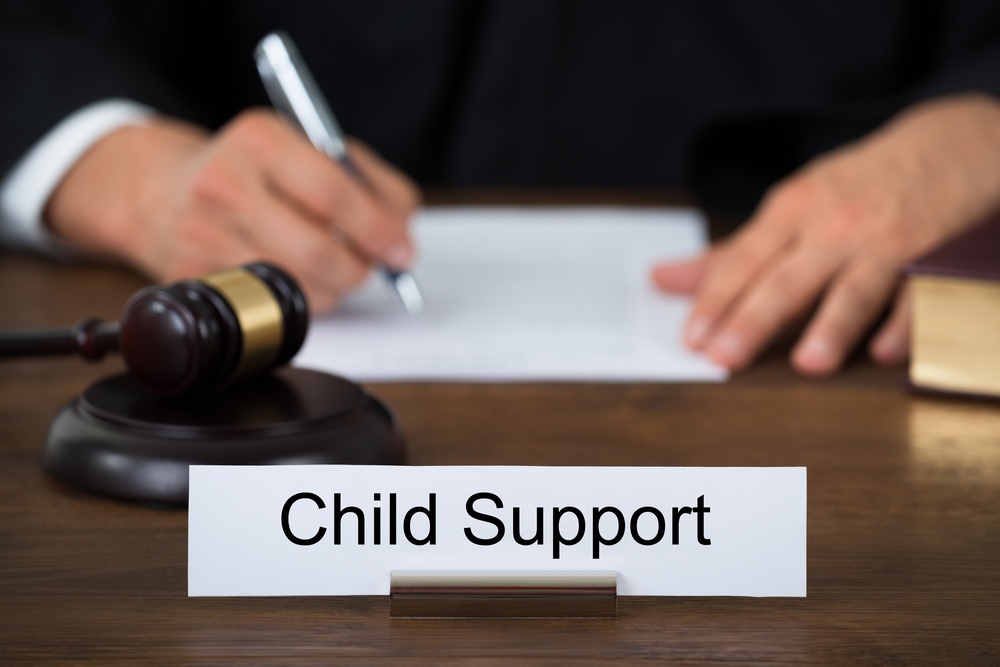Divorce is never simple, but that’s particularly true when children are involved. Both parents are obligated to support their children, and, for the non-custodial parent, that usually takes the form of financial payments called child support.
Setting the amount the non-custodial parent will pay in child support is not a simple matter. The rules are specific, the forms are technical, and mistakes can have lasting financial consequences. This complete 2025 guide walks you through how the Massachusetts Child Support Guidelines work, what factors influence the amount, and how the Family and Probate Court enforces and modifies these orders. If you’re a custodial parent or non-custodial parent, understanding your rights and responsibilities is key to protecting your child’s well-being.
Not clear on what laws apply within a divorce if there are children involved?

What Is Child Support and Who Pays It in Massachusetts?
AIn Massachusetts, child support is an ongoing financial payment (sometimes referred to as child maintenance) paid by the non-custodial parent. The amount the non-custodial parent pays and the frequency of payment are set during a legal proceeding (like a divorce or legal separation, for instance).
Note that support usually includes non-monetary elements depending on the family’s situation. For instance, the non-custodial parent may also be required to provide health insurance for the child(ren) if the custodial parent does not have access to health insurance through their employer.
How the law defines child support
In Massachusetts, child support is a recurring financial obligation that one parent pays to support the care and upbringing of a minor child. The obligor is the parent who pays, while the obligee is the parent who receives the support (or non-custodial and custodial parents if you prefer). These payments cover basic needs like housing, food, clothing, education, and medical care.
The court mandates payment based on guidelines designed to help make sure there’s a fair and consistent approach. In nearly all cases, the parent supports the child based on their ability to contribute and the child’s needs.
When support is required by law
A child support order is usually established during a divorce, separation, or following a paternity judgment. In Worcester County, this falls under the jurisdiction of the Worcester Probate and Family Court, where a judge issues an order after reviewing both parents’ circumstances.
Either parent can petition the court for support, and the court’s decision reflects the best interests of the child.

How Is Child Support Calculated in Massachusetts?
Child support is set as a percentage of the non-custodial parent’s income and is modified by the custodial parent’s income. Massachusetts Child Support Guidelines include income/support tables that explain the amount of support due, as well as how to calculate support if income falls between two amounts listed (the Guidelines state to use the lower amount in that case).
Understanding how child support is calculated is important for both parents: learn more about how support is calculated.
Factors used in the state’s formula
The Massachusetts Child Support Guidelines use a formula that considers both parents’ gross income, the number of overnights spent with each parent, and costs like health insurance, childcare, and other necessary expenses. Note that the formula does not include expenses like utilities, groceries, auto insurance, etc.
Here’s a simplified breakdown:
- Each parent reports income and major deductions.
- The court uses a formula to determine a base weekly amount.
- Adjustments are made based on shared custody or unique financial circumstances.
This process is data-driven but flexible enough to change with real-life scenarios.
When judges can deviate from the formula
In some cases, a judge approves deviation from the formula to account for extraordinary expenses, special needs, or other unusual factors. The legal term “deviation” means the support order will differ from what the standard calculation suggests.
A lawyer files a motion to request a deviation, and the court must determine whether it’s in the best interest of the child.
When Can Child Support Be Modified?
TChild support is not unalterable and can be modified under specific conditions, such as if the custodial parent remarries or the non-custodial parent loses their job. Modifications are not undertaken lightly, though.
Read more about modifications to understand what might affect your situation.
Life changes that justify a modification
Support orders aren’t set in stone. If there’s a material change in circumstances, like a job loss, a change in parenting plan, or a new family, a parent files a modification to reflect the new reality.The court reviews the change to determine if it’s substantial enough to merit a new order. Minor fluctuations in income or parenting time usually don’t qualify, but major shifts do.
How Is Child Support Enforced in Massachusetts?
Massachusetts enforces child support in multiple ways, from automatic paycheck deductions to license suspension and even jail time.
Learn about enforcement options and how they might affect your future.
Role of DOR and court enforcement
The Department of Revenue (DOR), through the Child Support Services Division (CSSD), can enforce payments through income withholding, tax refund intercepts, or placing liens on assets. The DOR can also suspend or revoke a driver’s license, professional license, trade license, or business license. In more severe cases, courts may step in.
If a parent ignores an order, the DOR withholds wages, and a judge finds contempt in court, which may result in fines, jail time, or both.

What Happens if a Parent Is Unemployed or Underemployed?
An unemployed or underemployed parent must still pay child support, but the court will adjust the amount based on previous income and/or ability to earn.
Explore how unemployment affects support so that you’re prepared for the ways these types of life changes affect your support order.
How courts handle low income or job loss
Support doesn’t automatically stop when someone is unemployed. Suppose a parent has quit their job or is underemployed without good reason. In that case, the judge imputes income, meaning the court assigns a theoretical income based on past earnings or employment capacity.
The parent must provide documentation of their efforts to find work. Even in tough times, the court focuses on the child’s needs first. Note that unpaid support still accrues interest and penalties. The state’s interest rate is 0.5% per month, and there is also a 0.5% penalty.
Do Stepchildren or New Families Affect Child Support?
Yes, a parenting plan can be modified later. Stepchildren and new families do not affect child support in significant ways most of the time. It’s important to fully understand the impact of second families for both custodial and non-custodial parents.
Understanding second family obligations
Generally, the birth of stepchildren or forming a second family does not automatically reduce a parent’s obligation to their first child. However, significant changes in income can affect the amount of child support the non-custodial parent owes, but adjustments to the amount are not automatic. One of the parents must request a modification.
A parent requests an adjustment, but unless there’s an extraordinary hardship, the court denies the reduction. The child from the original relationship remains a legal priority.

How Does Child Support Affect Your Taxes?
Under Massachusetts and federal law, child support has no impact on either the custodial parent’s taxes or the non-custodial parent’s taxes. Income tax can be a complex issue when dealing with a divorce. Get tax guidance for support payments.
Tax treatment of payments
In Massachusetts and under IRS rules, child support is not considered taxable income for the recipient, nor is it tax-deductible for the paying parent.
The parent pays tax on their own income, but support is excluded from income in tax filings. This simplifies the reporting process and prevents double taxation.
What If the Other Parent Lies About Their Income?
If the other parent lies about their income, the court can investigate to determine the truth and set an accurate child support amount. Income investigation is not simple, and custodial parents need to understand how to prove income misrepresentation.
Investigating and proving income misrepresentation
Unfortunately, some parents try to dodge obligations by misrepresenting their income. In those cases, a financial affidavit can be scrutinized using discovery tools like subpoenas, tax returns, or depositions.
If the attorney files a motion and proves the discrepancy, the court compels disclosure, and in some cases, may impute income based on evidence of concealed earnings.
How Can a Family Law Attorney Help with Child Support?
A family law attorney can help with child support in many ways, including the initial child support order, modifications, investigating income misrepresentation, and more.
When legal guidance is essential
Legal representation is important in most divorce cases, but especially during disputes over modification, enforcement, or when complex issues like self-employment come up. An experienced attorney represents the custodial parent and makes sure all filings, hearings, and arguments are handled properly. Whether you’re just starting the process or dealing with a delinquent ex, your lawyer files a request on your behalf, improving your chance of a favorable outcome.
This guide covered the essentials of child support in Massachusetts, from how it’s calculated to how it’s enforced, taxed, and modified. Whether the court orders child support, the parent pays support, or the DOR enforces the order, the child’s welfare is always at the center. If you’re navigating any aspect of this complex system, consulting with a family law professional makes sure you’re protecting your rights and your child’s future.
Start with Michelle Murray. She has considerable experience working with parents going through divorce in Massachusetts.
You can also review your options on the main family law page.

Michelle Murray has devoted her practice exclusively to family law matters, focusing her efforts on assisting clients through divorce, custody, property division, child support, spousal support, and visitation issues throughout Worcester County.
